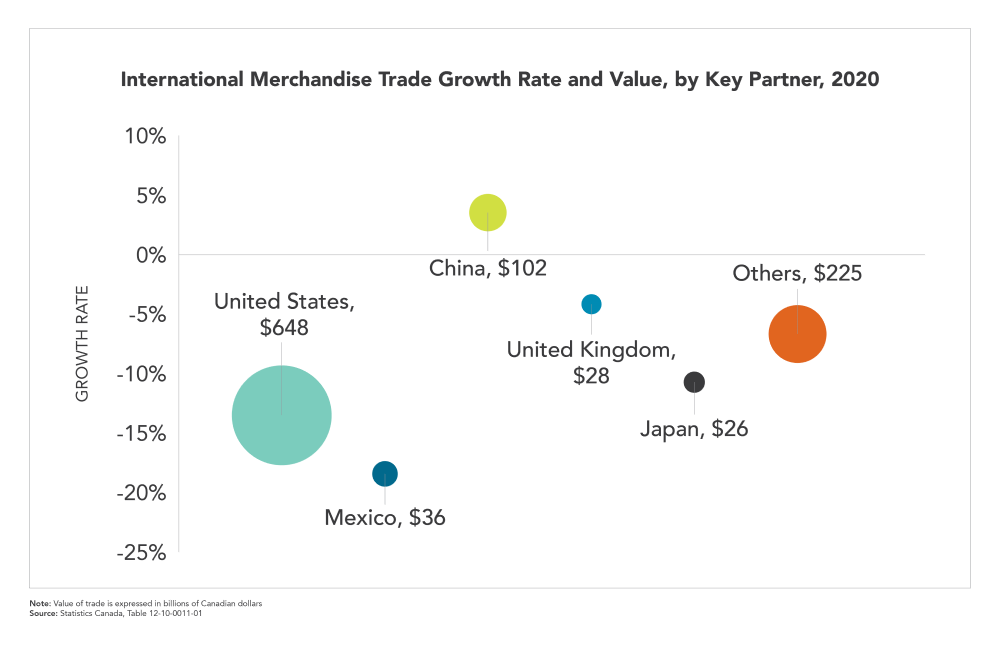Transportation is important for trade. It allows natural resources, agricultural products and manufactured goods to reach domestic and international markets.
The value of interprovincial merchandise trade totaled $166 billion in 2019, up 0.2% from 2018.
In 2020, international merchandise trade equaled around $1.07 trillion, a 10.9% decrease from 2019 and the lowest value since 2016 due to the pandemic. The US remains Canada’s top trading partner, with $648 billion in total trade ($384 billion exported, $264 billion imported), down 13.8% from 2019. The US made up 61% of all Canadian trade in 2020, the lowest share since 2011.
Other than the US, in 2020, Canada’s top 5 trading partners included China, Mexico, Japan and the United Kingdom. These 4 countries represented 18.0% of Canada’s total international trade in 2020.
Image description: International merchandise trade growth and value, by key partner, 2020
The bubble chart shows merchandise trade value (size of the bubble) and 2020 growth rate (vertical axis) for Canada’s key trading partners (United States, China, Mexico, United Kingdom and Japan). United States is Canada’s most significant trading partner in terms of merchandise value, with $648 billion. China was the second most important trading partner in terms of merchandise value.
| Country | Growth rate | Trade value |
|---|---|---|
| United States | -13.8% | 648 |
| Mexico | -18.8% | 36 |
| China | 3.4% | 102 |
| United Kingdom | -4.4% | 28 |
| Japan | -10.9% | 26 |
| Others | -6.8% | 225 |
Source: Statistics Canada, Table 12-10-0011-01
Note: Trade value is expressed in billions of Canadian dollars
The department supports Global Affairs Canada in advancing Canada’s trade policy priorities and interests, including the negotiation of a number of trade and investment agreements. Transport Canada plays an important role in making sure that Canada has the transportation services and infrastructure needed to connect Canadian products and businesses to international markets, without compromising the safety and security of the traveling public.
Recently concluded free trade agreements include the Canada-US-Mexico Agreement, the Canada-EU Comprehensive Economic and Trade Agreement, and the Comprehensive and Progressive Agreement for Trans-Pacific Partnership. As of March 2021, Canada had 14 free trade agreements in force with 51 countries, representing two-thirds of the global economy. Canada is also the only Group of Seven (G7) country to have free trade agreements with every other member of the G7, connecting Canadian businesses to over 1.5 billion of the world's consumers.
